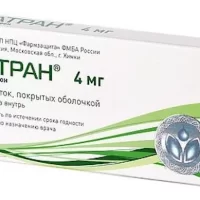Description
Pancreatin Forte Pharmacodynamics
Digestive enzyme, compensates for insufficient secretory function of the pancreas, improves digestion, has proteolytic, amylolytic and lipolytic action.
Pharmacodynamics. Pancreatic enzymes (lipase, alpha-amylase, trypsin, chymotrypsin) contribute to the breakdown of proteins to amino acids, fat – to glycerol and fatty acids, starch – to dextrins and monosaccharides.
Trypsin suppresses stimulated pancreatic secretion with an analgesic effect.
The enzyme hemicellulase promotes the breakdown of plant fiber, which also improves digestive processes and reduces gas formation in the intestine.
Indications
Substitution therapy for external pancreatic insufficiency: chronic pancreatitis, pancreatectomy, the state after radiation, dyspepsia, cystic fibrosis, flatulence, diarrhea of non-infectious genesis.
Impaired food digestion (condition after resection of the stomach and small intestine); for improving digestion in persons with normal gastrointestinal tract function in case of poor diet (fatty food, large amount of food, irregular meals) and in case of disorders of chewing function, sedentary lifestyle, prolonged immobilization. Remheld syndrome (gastrocardia syndrome).
Preparation for X-ray examination and ultrasound of the abdominal cavity.
Contraindications .
Hypersensitivity to the components of the drug, acute pancreatitis, exacerbation of chronic pancreatitis.
Hereditary intolerance to galactose, lactase deficiency or glucose-galactose malabsorption syndrome.
Childhood age less than 3 years.
Administration during pregnancy and lactation
During pregnancy and breast feeding the drug is prescribed only if the expected benefits to the mother exceed the potential risk to the fetus or child.
Dosage and administration method
- Orally, swallowed in whole (without chewing), during or immediately after a meal, with plenty of liquid (alkaline: water, fruit juices, if possible).
- Dose of the drug is set individually (in terms of lipase), depends on age and degree of pancreatic insufficiency.
- It is not recommended to exceed the maximum daily dose of 15000-20000 units of lipase/kg, especially in cystic fibrosis patients.
- The average dose for adults is 150,000 IU/day; in complete pancreatic external secretory function insufficiency it is 400,000 IU/day, which corresponds to the daily requirement for lipase in an adult.
- The duration of treatment can vary from a single dose or a few days (when digestion is disturbed due to errors in diet) to several months or even years (if constant replacement therapy is necessary). Adults – 3-4 tablets 3 times a day. Higher doses are prescribed by the doctor.
- 2 tablets 2-3 times a day for 2-3 days before X-ray or ultrasound examination.
- Children over 3 years of age – 100 thousand units/day (by lipase) divided into 3-4 doses.





